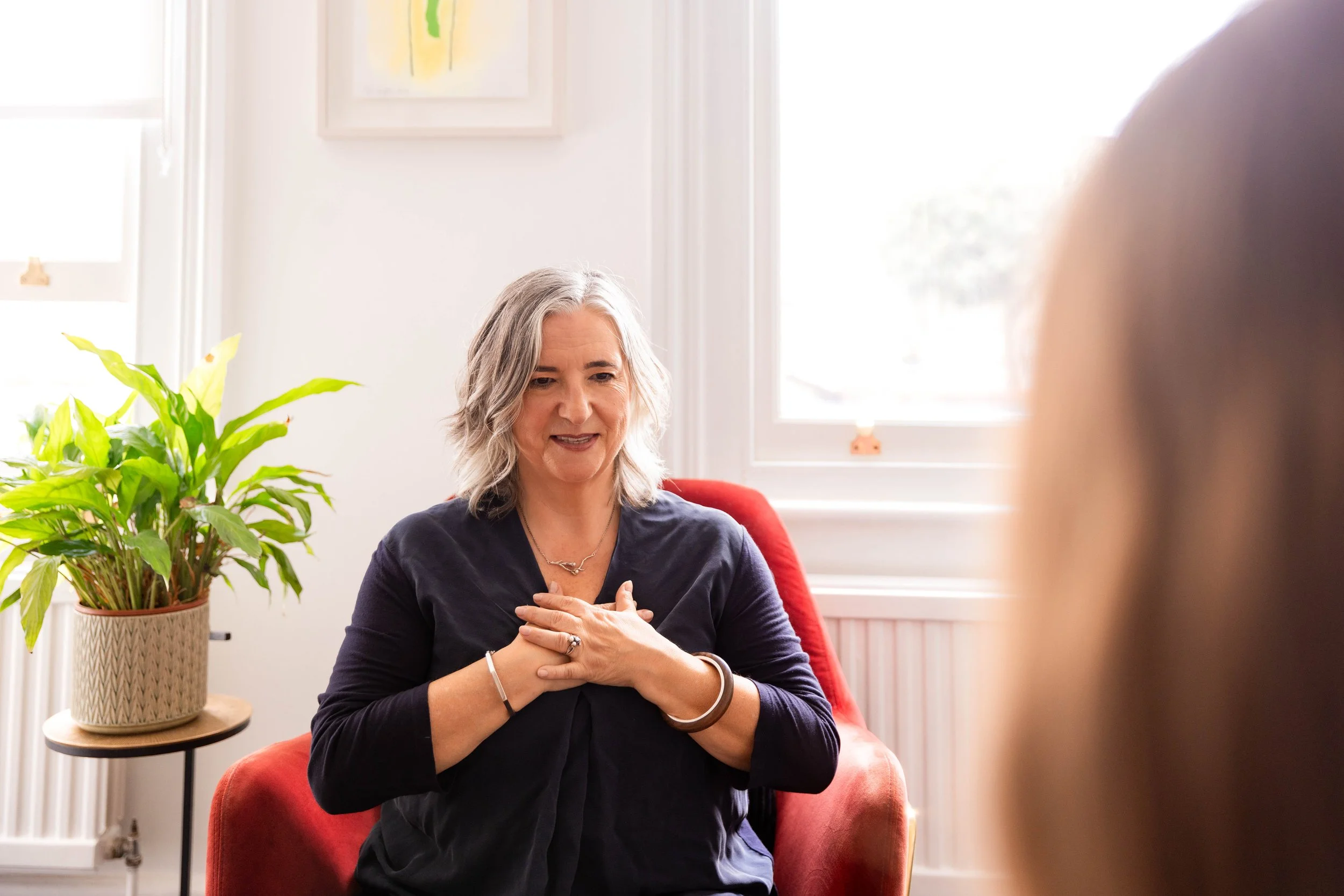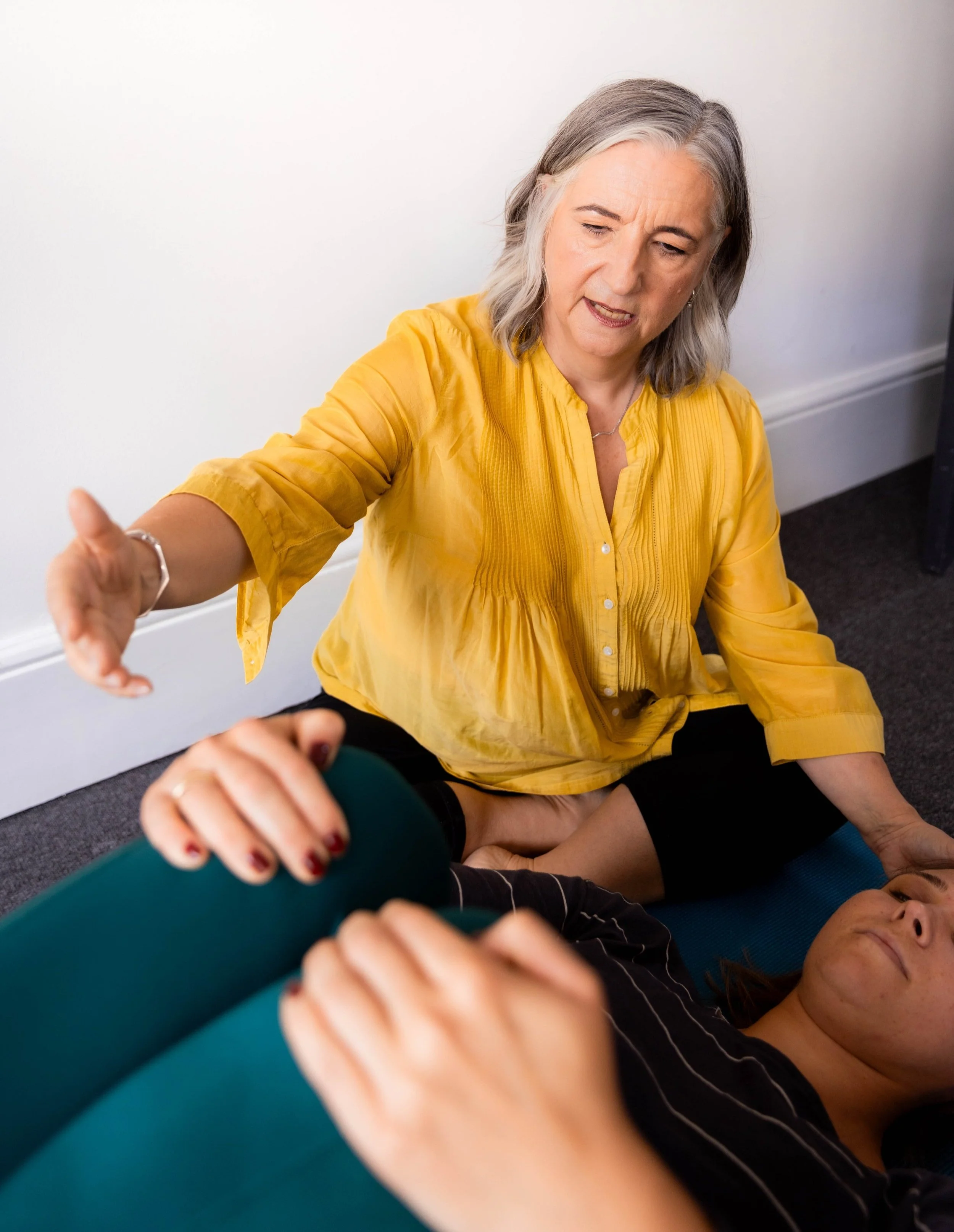Integrative Yoga Psychotherapy
“The psyche and body are not separate entities. One does not have a body; one is a body.”
- Carl Jung
Integrative Yoga Psychotherapy recognises that the mind and body are not separate, and that lasting change comes when we work with both. It’s built on the understanding that our emotional experiences live in the body as much as the mind.
In practice, our work together may use tools and approaches drawn from a range of disciplines, such as:
Humanistic approaches
Existential Relational Psychotherapy
Phenomenology and Gestalt
Transactional Analysis
Third-wave Cognitive Behavioural Therapy (CBT) modalities, such as ACT and Compassion Focused Therapy
Embodied practices such as Sensorimotor Psychotherapy and Somatic Experiencing
Trauma work informed by Polyvagal Theory
Integral Eye Movement Therapy (IEMT) and Eye Movement Desensitisation and Reprocessing (EMDR)
Mindfulness Based Stress Reduction
Psycho-education about neuroscience
Philosophical concepts from Eastern and Western wisdom traditions, including Buddhism and Yoga
Yoga Therapy
Integrative Yoga Psychotherapy is especially helpful
if you:
Struggle with anxiety, trauma, or chronic stress
Have a history of trauma
Find it hard to put emotions into words
Feel disconnected from your body or overwhelmed by sensations
Want to reduce reliance on unhelpful coping habits
Seek deeper self-understanding and emotional resilience
Life today often leaves us stuck in survival mode, tense, rushing, or worrying. When your nervous system is overloaded, your mind and body pay the price. You might feel:
Fatigue, aches, headaches, gut issues, or low immunity
Anxiety, burnout, endless overthinking, or feeling emotionally drained
You can retrain your nervous system to shift out of fight-or-flight and into rest-and-digest mode, finding balance that allows you to respond effectively to life’s challenges.
This is achieved through simple, science-backed tools like:
Breathing practices to slow down and reset
Gentle movement to release tension
Mindful awareness to break free from stress cycles
Posture and grounding techniques to feel more present
Relaxation methods to boost resilience over time
Countering self-criticism with self-compassion
Together, we’ll help your body and mind find balance, so you can feel calmer, clearer, and in control.
Balance
Integrative Yoga Psychotherapy often unfolds in three overlapping and interconnected stages: Balance, Shift, and Transform. The work is tailored to you, not bound by a fixed method. At every step, we adapt to meet your needs, goals, and readiness.
Shift
Before we can grow, we need to meet ourselves where we are. Without judgment, with acceptance. Together, we’ll practice staying present, even with difficult emotions, instead of avoiding or fighting them.
When we stop fearing our feelings, something shifts. Our bodies relax. Our thoughts soften. Old patterns of overthinking, self-criticism, or knee-jerk reactions start to loosen.
We begin to feel more at home in ourselves, and in the world around us.
Transform
At this stage, we find clarity in our purpose and confidence in our path. We experience deep integration – of body, mind, emotions, insight and spirit. We gain clarity about our values and life purpose.
The shift brings liberation: freedom from what makes us suffer, including our own limiting thoughts and behaviours. We discover new wells of creativity and compassion, for ourselves and others.
Our perspective transforms into one of mindful presence - non-judgmental, open, fully engaged with life. This is the emergence of our authentic self. This is who we were meant to be.





